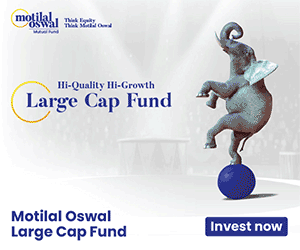9 Steps of Investment Success for the Young Generation

Nowadays, conversation of any importance always centers the young generation. It is solely because 60% of the population in India is young guns and they are making a difference to the economy. They are believed to be the major contributors to the Gross Domestic Product and the current and future leaders of the nation. While everyone is considering them to be instrumental to the success of this country, there are major concerns about, what makes the young generation successful.
With the young wave engulfing the entire country, there are fundamental changes in the lifestyle. The dominant culture today is not one of sustenance but one of excess. With changes in the job sectors and sharp rise in the employment by private sectors, the financial power of an individual is exponentially higher than what it was in the last few decades. Along with a culture of excess, one is always haunted by the wave of materialism, where we are forever acquiring materials. Eating out and shopping is not a rare phenomenon anymore, rather a common weekend activity. With such sharp changes in lifestyle we increasingly miss out on an old school thought, the emphasis on savings. The tales of youngster being in debt and depending upon credit cards is becoming a common phenomenon. Hence, the old habit of savings is slowly being replaced by overspending. In such a state, we need to think about why despite having more financial ability we still suffer from lack. ‘Enough’ is not a commonly used word and this points to an unfortunately common phenomenon of the lack of savings and investment.
Despite starting the months with the decision to save at the end of the month there is hardly anything left in the bank account. The intentions are often not reflected in the action. Why is this generation not being able to save and invest successfully? A miniscule percentage in our country invests. A simple change in lifestyle could possibly change this habit. Let us see what steps can be taken to make your investment journey a success.
Assessment of Income and Spending
How much do you earn? It is essential for you to know the distinction between gross income and net income. Gross income is the salary from which tax deductions, and contributions to Employees Provident Fund is made. The balance is known as the net salary or the salary you take home. It may sound basic, but as a working professional it is essential that you know the percentage of your salary being deducted for professional taxes and EPF, if any.
The easiest way to assess your spending is not to throw the bills or check the list of transactions on your net banking account. The only way to save is by analyzing how you spend and the avenues of your expenditure. Then you can identify the areas where you can cut down and slowly start your savings. Simply speaking, total spending deducted from your net income is your savings. Hence, if you do not have any funds at the end of the month, you need to start figuring out your spending habits and start saving.
Make a List of Goals
Personal goals define your investment needs. What are your goals? Goals are milestones in your life which you wish to achiever for personal gratification. However, to be able to achieve this you need a strong financial backing. To be able to make a list of goals, the best and probably the most effective way is to put the goals along a timeline. Goals can be defined as:
- Short Term Goals: These are goals that have to be achieved in a short span of time say a year or two years. These are goals for which you may require corpus immediately.
- Intermediary Goals: These are goals that are a little further away. There is still time left for investments and wait for the returns to generate a decent corpus. These goals could be five years or seven years down the timeline.
- Long Term Goals: These are goals which are usually to be achieved at an advanced age like retirement or goals set out that you wish to achiever after ten years, or fifteen years or even further.
Once you have decided your goals to be any of these three and marked your goals with a timeline, you can start planning your investments based on these.
Find Out Your Total Savings
Savings could mean the little money stashed in your bank account or all the gift money that you have deposited in your almirah. Money that is lying idle and is not being utilized to generate returns of any kind could constitute your savings. Gather all the money and get a definite number on your total savings. If you have been working for a few years now and you only have few thousands to account for your total savings, it is not a good sign. The amount you save speaks about your finances more than your net earnings. Hence, it is time you took an assessment of your savings and see where you stand financially.
Know Your Investment Needs and Risk Taking Ability
You do not have to be like your daring neighbor who boasts of taking risks in the stock market. Neither do you have to be like your relative who has always invested in fixed deposits and savings accounts. It is important to note that other investor’s investing methods do not define your investment appetite. Investment appetite is based on your investing needs.
Another important aspect that defines your investments is your risk taking ability. There is nothing wrong in being careful or even wanting to make profits. In most personal goals it is seen that calculated risk is an essential component to generate returns and facilitate the growth of the corpus. The perpetual question a lot of investors ask is, does the risk determine the investment need or the investment need determine your risk. Let us consider a scenario where your personal goal is buying a house in the next ten years. It means you might need a considerable corpus. A traditional method of investment is not going to be enough. In this scenario, investment in stocks or equity mutual funds becomes necessary to give your portfolio that extra boost. Do not let your risk taking ability be a hindrance to your investment needs; also avoid having unrealistic expectations and taking unnecessary risks.
Have an Investment Plan
An investment plan is a comprehensive map which shows how your money is being channeled into various investment instruments. Investment plan also becomes your personal guide which tells you when the insurance premiums have to be paid, the due date for the Systematic Investment Plans (SIPs). As an investor you could make your own investment plan. However, experts are of the opinion that an investor should ideally seek the help of a professional to come up with an investment plan. A financial adviser is one such expert who has knowledge and/or experience to help you come up with an investment plan suited to your needs.
Get adequate Life and Health Insurance
You financial goals will be fulfilled only if you live a healthy life. However, you cannot get so optimistic that you ignore the inevitable death. Get a term plan based on your earnings which gives you coverage of as long as 70 - 75 years at least. You can get a higher term plan or have a greater coverage in the same term plan once your income increases. If you are switching jobs and your new organization does not provide insurance facilities then you have to increase the coverage or you are becoming an entrepreneur then you must increase your term plan. You could also look into family floater options that cover an entire family for a stipulated premium.
If you never have to use the corpus before maturity, then you have an assured sum that you can use to fulfil your long term goals. While you cannot predict health problems you can make sure you get the best facilities. Insurance not only covers you and your health but it also protects your family in case of an untoward situation.
Start Your Retirement Planning
As investors we tend to ignore the long term goals. Ignore the goal of retirement planning at your own risk. You only have your corpus to support you during the retirement days. Hence, planning for it is absolutely crucial. You do not have to start investing lump sums at an early stage because you will have other goals to focus on. However, a small sum invested every month through SIPs could take you far.

https://www.advisorkhoj.com/tools-and-calculators/systematic-investment-plan-calculator
As a young investor you do not have to start investing lump sums. Just disciplined investments, even if they are small sums could be enough for a retirement corpus. The amount that is enough to invest when you are 25 years i.e र 5000 invested every month over a long period of time could become a sum as huge as a lakh per month to generate the same returns. Hence, start retirement planning and do it now.
Need for an Emergency Fund
An emergency fund is what you will rely upon when you have to tackle a financial situation that you had not anticipated. An emergency fund should consist of 3 to 6 months of your monthly income. In your investment plan you must include a component of uncertainty and a financial provision to tackle the uncertainty. The key to having an emergency fund is easy access to funds without disturbing your ongoing investments. Hence, do not invest the corpus for emergency fund in instruments that have a lock up period such as Equity Linked Savings Scheme or fixed deposits. Liquid funds in Mutual funds could be a good option for such corpus where you could invest for as less as a month. A successful investment plan must include an emergency fund so that despite adversities you well planned life and the corresponding investments continue to run smoothly.
Rebalance and Readjust Your Portfolio
Making an investment plan is not a onetime thing. Investments are instruments that have to be changed as when our needs change. The investment plan that was ideal when were amateur investors will not be the same when the investors are middle aged and at the peak of their income. An investor in their 60s will have a different investment plan than an investor in their 20s. A successful investment plan is that which is reviewed and boosted periodically. Given below is possible asset allocation that could be done when an investor is at various stages in his life. Rebalancing and readjusting is ensuring that your investing mechanisms stay well oiled.

https://www.advisorkhoj.com/tools-and-calculators/asset-allocation
Conclusion
The young generation is driving this country. They represent the present and the future of the country. The young generation has to ensure that they, the driving factor, are also driven by the right motives. As professionals one should and must enjoy their lives and grasp all that life has to offer. However, it should not come at a heavy cost to your future needs. The young generation should become aware about the investing options and slowly the wave should change from savings to investments.
Queries
-
What is the benefit of mutual fund STP
Aug 29, 2019
-
How much to invest to meet target amount of Rs 2 Crores
Aug 26, 2019
-
Can I achieve my financial goals with my current mutual fund investments
Aug 24, 2019
-
Can you tell me return of various indices
Aug 19, 2019
-
What would be the post tax return on different investments
Aug 18, 2019
-
Which Principal Mutual Fund scheme will be suitable for my retirement corpus
Aug 16, 2019
-
What is the minimum holding period for availing NCD interest
Aug 4, 2019
Top Performing Mutual Funds
Recommended Reading
Fund News
-
Axis Mutual Fund joins ONDC Network to Expand Access to Mutual Fund Investments
Apr 18, 2025 by Axis Mutual Fund
-
Nippon India Mutual Fund launches Nippon India Nifty 500 Quality 50 Index Fund
Apr 18, 2025 by Advisorkhoj Team
-
Nippon India Mutual Fund launches Nippon India Nifty 500 Low Volatility 50 Index Fund
Apr 18, 2025 by Advisorkhoj Team
-
RBI Monetary Policy: RBI changes policy stance and lowers rate
Apr 9, 2025 by Axis Mutual Fund
-
Kotak Mahindra Mutual Fund launches Kotak Nifty Top 10 Equal Weight Index Fund
Apr 7, 2025 by Advisorkhoj Team













